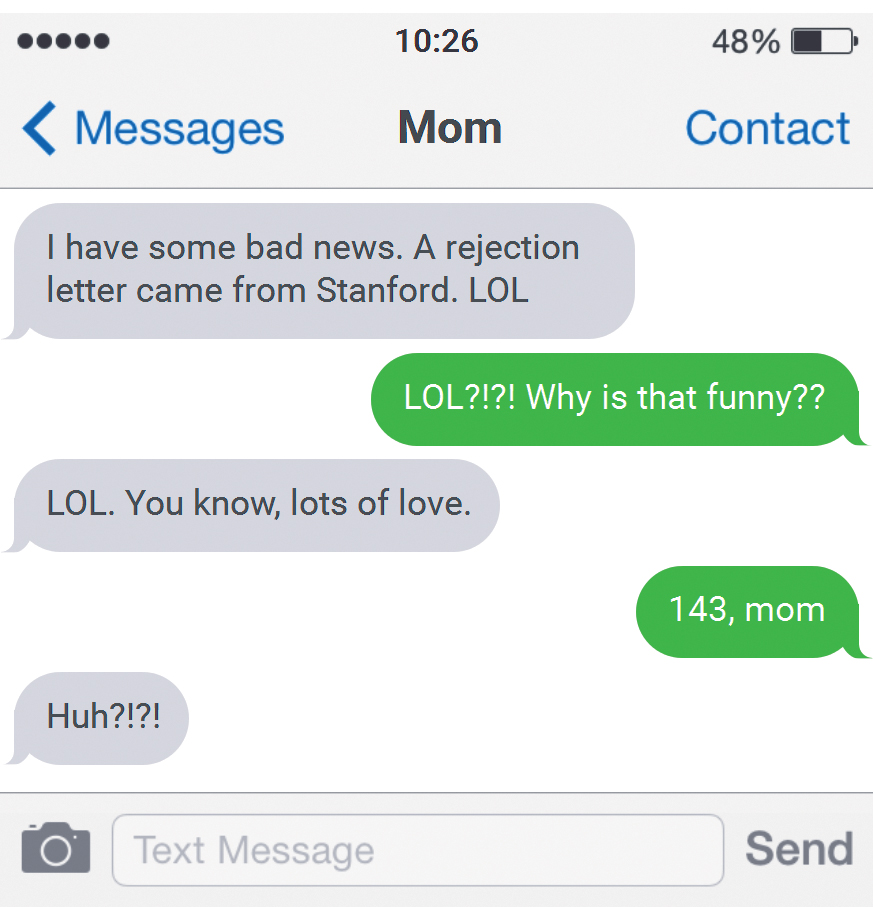Literacy Communities
5
In this era of human communication, as a user of the Internet you literally have access to the entire world. Thus, you need to possess multiple literacies and be able to create and communicate knowledge to people of different ages, interests, classes, genders, and backgrounds. These are the distinctions that define what are called “literacy communities,” groups of people who not only share the same language but share the same slang, the same symbols, and the same points of reference. People tend to belong to a number of different literacy communities, and we often switch between these literacy communities effortlessly, though sometimes the switching can cause confusion.
For example, look at the following text message exchange between a mother and her daughter:

It is clear that the mother is not yet completely literate in texting, which causes confusion when she tries to share the same “symbol system” as her daughter. People tend to fall into various “literacy communities” based on age, interests, social class, gender, geography, and other factors. As much as the mother in the example above would like to be a part of her daughter’s literacy community, she does not yet understand all of the language found within that community, perhaps because of her age or her lack of experience with texting.